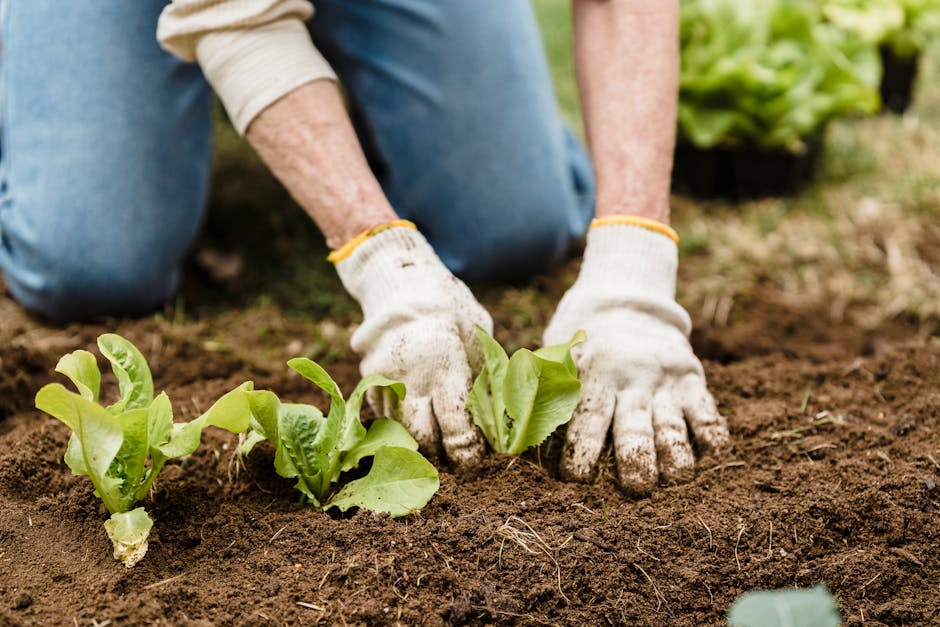
Benefits of sprouting seeds for your garden
Sprouting seeds offer various benefits for your garden. They provide fresh and nutritious organic produce right at your fingertips. By using sprouting seeds, you can control the quality and ensure that no harmful chemicals are used in your garden. Additionally, sprouting seeds are cost-effective and require minimal space, making them ideal for small gardens or indoor gardening. These seeds also have a quick growth cycle, allowing you to enjoy your homegrown sprouts in a short amount of time.
Factors to consider when selecting bulk sprouting seeds
When picking bulk sprouting seeds, you should think about the following factors:
- Germination Rate: Ensure the seeds have a high germination rate for successful sprouting.
- Variety: Choose a variety that fits your taste preferences and nutritional needs.
- Organic Certification: Look for seeds that are certified organic to avoid pesticides or chemicals.
- Quantity: Determine how many seeds you need based on your garden size and consumption.
- Storage: Consider how you will store the seeds to maintain freshness and viability.
Organic vs. non-organic sprouting seeds
Organic sprouting seeds are grown without synthetic pesticides or fertilizers, making them a natural choice for your garden. They are non-GMO and free from harmful chemicals. Additionally, organic sprouting seeds are environmentally friendly and support sustainable farming practices. On the other hand, non-organic sprouting seeds may contain pesticides and synthetic fertilizers, which can be harmful to your health and the environment. Non-organic seeds may also be genetically modified. Organic seeds are a safe and eco-friendly option for your garden.
Different types of sprouting seeds available in bulk
When buying bulk sprouting seeds, you may come across various types. Some common options include broccoli, alfalfa, radish, mung bean, and fenugreek seeds. Each type has its unique flavor and nutritional benefits, so you can choose based on your preferences and dietary needs. It’s essential to select seeds that are organic and non-GMO to ensure the highest quality for your sprouting endeavors.
Understanding seed quality and germination rates
When selecting bulk sprouting seeds for your organic garden, it’s essential to consider the quality of the seeds and their germination rates. High-quality seeds will have better germination rates, which means they are more likely to sprout and grow into healthy plants. Look for seeds that are labeled as organic, non-GMO, and heirloom, as these types of seeds tend to be of higher quality. Pay attention to the seed supplier’s reputation and customer reviews to ensure you are purchasing seeds that will yield a successful harvest.
Tips for storing bulk sprouting seeds properly
When storing bulk sprouting seeds, it’s crucial to keep them in a cool, dry place away from direct sunlight. Using airtight containers like glass jars can help maintain their freshness for longer periods. Avoid storing seeds near heat sources or in humid environments, as moisture can lead to mold growth or spoilage. Label your containers with the seed type and date of purchase to track their freshness. Rotate your stock by using older seeds first to ensure you always have the freshest batch on hand. Proper storage practices can help extend the shelf life of your bulk sprouting seeds, ensuring the best results for your organic garden.
Best practices for sprouting seeds in your garden
Choosing the best sprouting seeds for your garden is crucial for a successful harvest. When selecting seeds, opt for organic, non-GMO varieties to ensure healthy growth. Keep in mind the climate and soil conditions in your area, as different seeds thrive in different environments. Additionally, make sure to follow the recommended planting depth and spacing for each type of seed to promote optimal growth. Regularly water and monitor your sprouting seeds to help them germinate and grow into vibrant plants.
Harvesting and using sprouts from bulk seeds
When harvesting sprouts from bulk seeds, rinse them thoroughly before consumption to remove any remaining seeds or hulls. Sprouts are best enjoyed fresh to retain their nutritional value. Try adding sprouts to salads, sandwiches, or smoothies for added crunch and flavor. Experiment with different seed varieties to find your favorite sprouts for a delicious and healthy addition to your meals.
Comparing prices and sourcing quality bulk sprouting seeds
When comparing prices for bulk sprouting seeds, it’s essential to consider the quality of the seeds you’re sourcing. High-quality seeds ensure a successful harvest and vibrant growth in your organic garden. Ensure to inquire about the seed source and check for any certification of organic or non-GMO seeds. Researching different suppliers can help you find the best balance between price and quality. Bulk purchasing can often provide cost savings, but make sure to inspect the seeds for freshness and viability.
Maintaining a sustainable garden with bulk sprouting seeds
When maintaining a sustainable garden with bulk sprouting seeds, it’s essential to consider a few key factors. Bulk sprouting seeds are a cost-effective way to grow a variety of healthy and nutritious sprouts at home. Here are some tips to help you choose the best bulk sprouting seeds for your organic garden:
- Look for organic seeds to avoid pesticides and chemicals in your sprouts.
- Consider the types of sprouts you want to grow and select seeds accordingly.
- Ensure the seeds are fresh and have a high germination rate for successful sprouting.
- Store your bulk sprouting seeds in a cool, dry place to maintain their quality. By following these tips, you can enjoy a thriving organic garden with a continuous supply of fresh and nutritious sprouts grown from your chosen bulk sprouting seeds.




